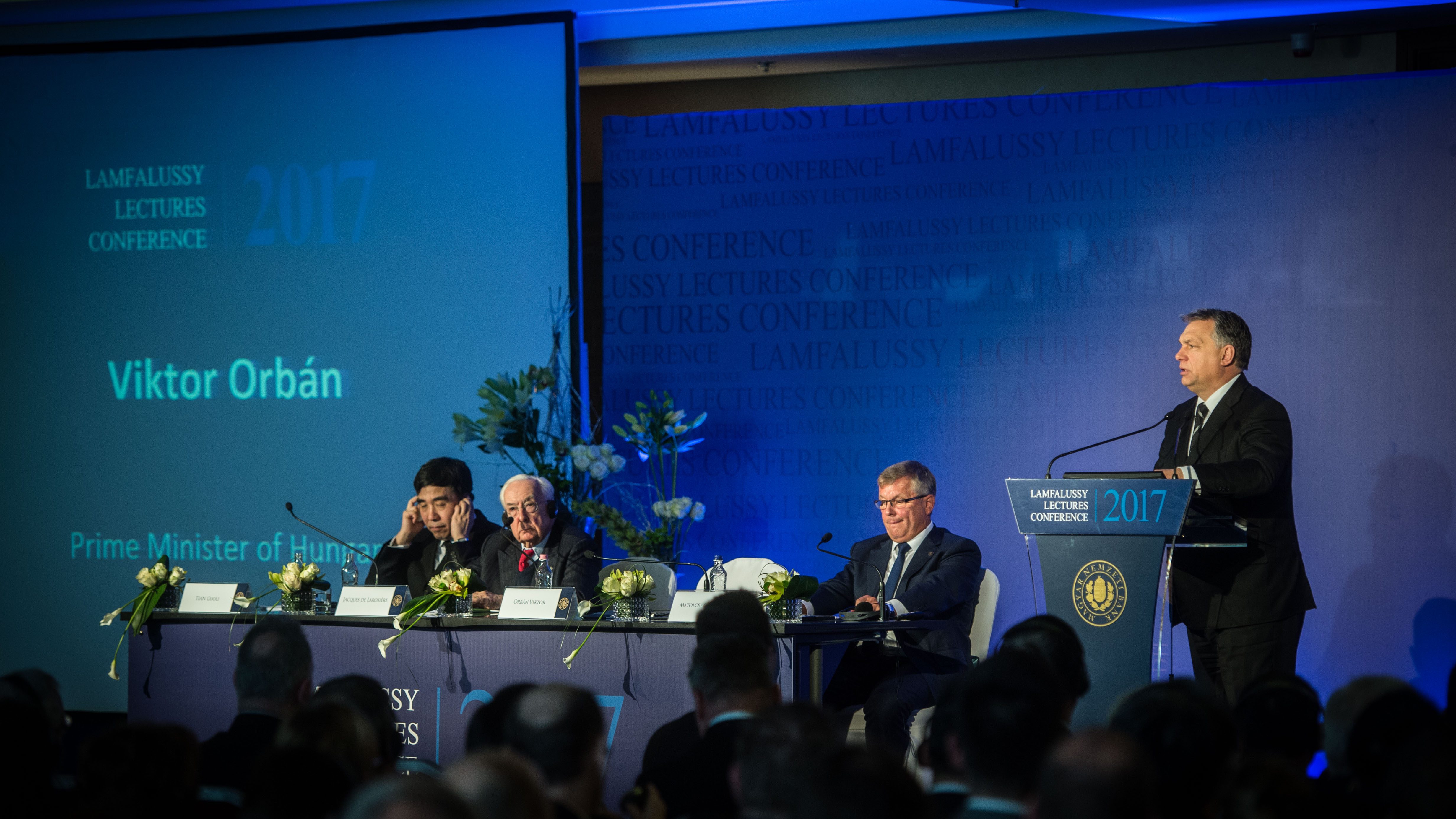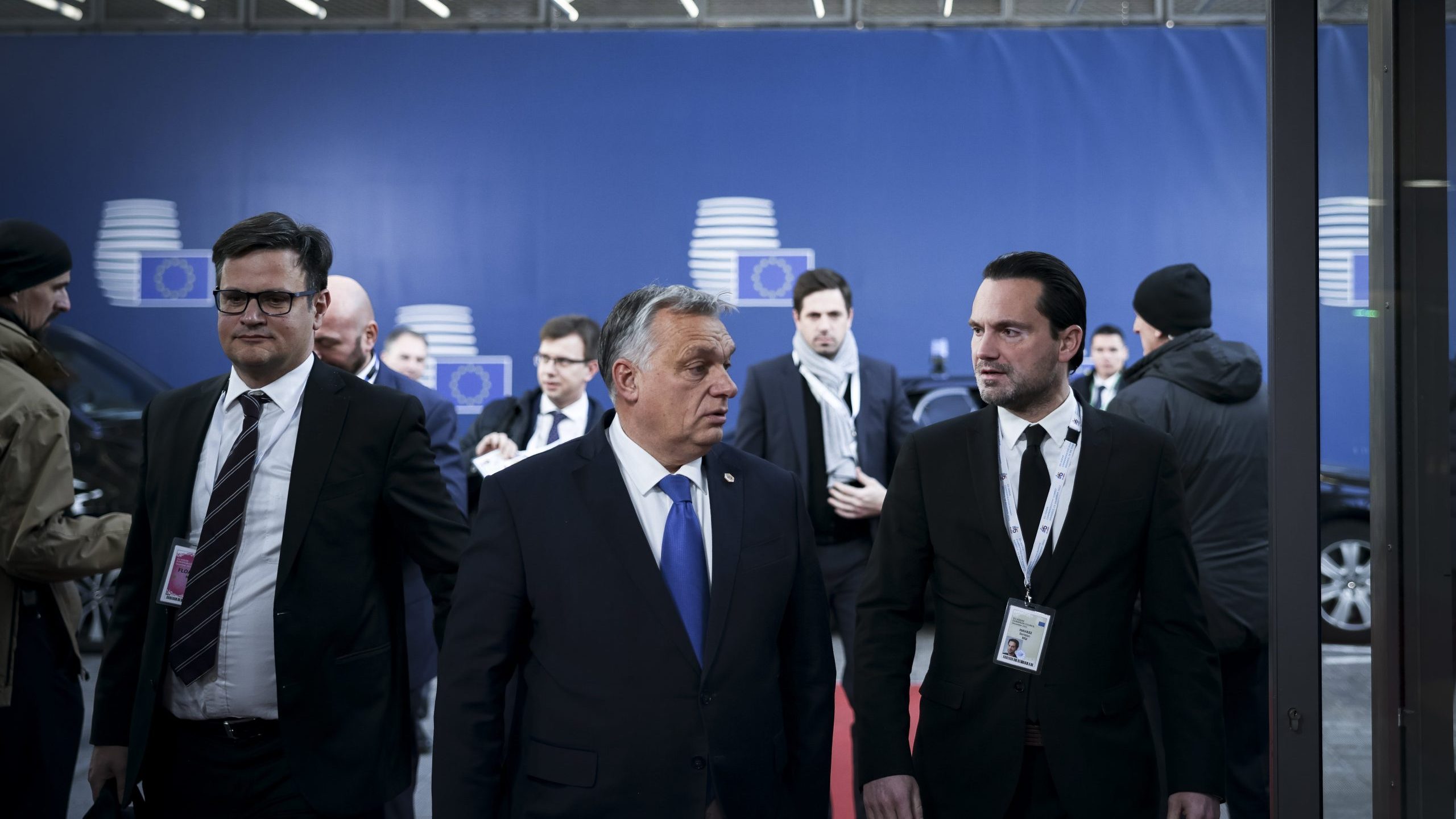
Brussels has become enslaved to a utopia
The Prime Minister said that Europe is becoming increasingly weak, and is now even forced to struggle for the status of regional player. It has been unable to achieve its ambitious goals, such as that of the euro becoming one of the world’s reserve currencies alongside the dollar. Mr. Orbán also pointed out that the development of an independent European security policy and the plan for a Eurasian economic region have also come to nothing.
In his view the reason for these multiple failures is that “Brussels has become enslaved to a utopia” which is called a supranational Europe. This is an illusion, he said, as there is no European people, but only European peoples.

Mr. Orbán believes that the solution needed to once more make the continent competitive lies in Europe abandoning “the illusion of federalism”, and becoming multipolar. The Visegrád Group (Hungary, Poland, the Czech Republic and Slovakia) wants to be a strong pole within such a system, he said.
New agreement must be concluded with the United States
The Prime Minister added that a new agreement must be concluded with the United States instead of the “ill-fated” free trade agreement, because the latter is unlikely to come into being.
The Prime Minister also spoke about the statement made by the new US president Donald Trump, who was inaugurated on Friday, and who said that every nation has the right to put itself first, before everyone else. In Mr. Orbán’s opinion, this key statement – which could not have been made earlier – represents a major change: it indicates that multilateralism is at an end, and that an era of bilateral relations is upon us.

Commenting on the new US president’s words, Mr. Orbán said that “We have received permission from the highest secular office in the world, in line with which we will also be allowed to place ourselves first. This is a great thing: a great freedom and a great gift”.
In his view, bilateral agreements will also replace the former multilateral ones in military and economic policy areas. There is no single “one size fits all” economic policy which would be equally successful for nations which are extremely diverse, the Prime Minister explained.
We need more European self-confidence
Listing the tasks for Europe, Mr. Orbán said that we must also conclude agreements with China, and the issue of Russia must be placed back on the agenda as well. He stressed that a multipolar world order offers inherent opportunities. He described China as a “fixed star”, which will determine the world economy for many decades. Speaking about Russia, he said that it has survived “Western attempts at quarantining it, and attempts to bring down the regime”, the low oil prices, sanctions, and “the free, non-partisan, domestic activities of non-governmental organisations, which obviously came about without external interference”.
In Mr. Orbán’s view, it is unreasonable to ignore the power and the opportunity represented by Russia. We need more European self-confidence, he continued, and the continent must be able to protect itself militarily, without external assistance. At present this is not the case, he stated. He also welcomed the visit to Berlin on Monday by the French centre-right presidential candidate Francois Fillon. Mr. Orbán called him “the next President of the French Republic, we hope”, and stated that the most important topic of the visit could be a common European defence alliance.

The great question for the future, Mr. Orbán said, is whether Europe will be able to defend itself without the United States. “The key to solving this issue is something that appears to be the simplest thing in the world: German-French security and military cooperation, a common army, and a common security system”, he said.
Listing Europe’s problems, the Prime Minister also observed that crime rates increase immediately wherever immigrants settle in the continent in large numbers. In his view the answer to our demographic problems is not the settlement of people: it is not migration. A nation that is unable to sustain itself does not deserve to exist, he said.
Hungary has become a success story
Speaking about the Hungarian economy, the Prime Minister pointed out that Hungary has become a success story, with the four elements of the Hungarian model being: political stability; strict fiscal policy; a workfare society, rather than a benefit-centred society; and eastward opening. In relation to the latter, he said that the Europeans must understand that it is not viable to think that “we want to open in the direction of other countries, towards the East – say towards China economically – and then every morning lecture them on human rights”.
The essence of eastward opening lies in respect being prioritised over ideology, he stressed, adding that in this regard the Hungarians are luckier, because “we are an Eastern people which was infused with Christianity, and this leads to a special viewpoint, meaning that we understand all that is happening in China”.
Talking about the National Bank of Hungary, Mr. Orbán observed that Hungary went through a great deal of unnecessary suffering when the central bank was “in opposition”: when politics and finance were heading in two distinctly different directions. Since the national bank started seeking cooperation with the political leadership of the day, however, there has been spectacular economic growth, he said.


